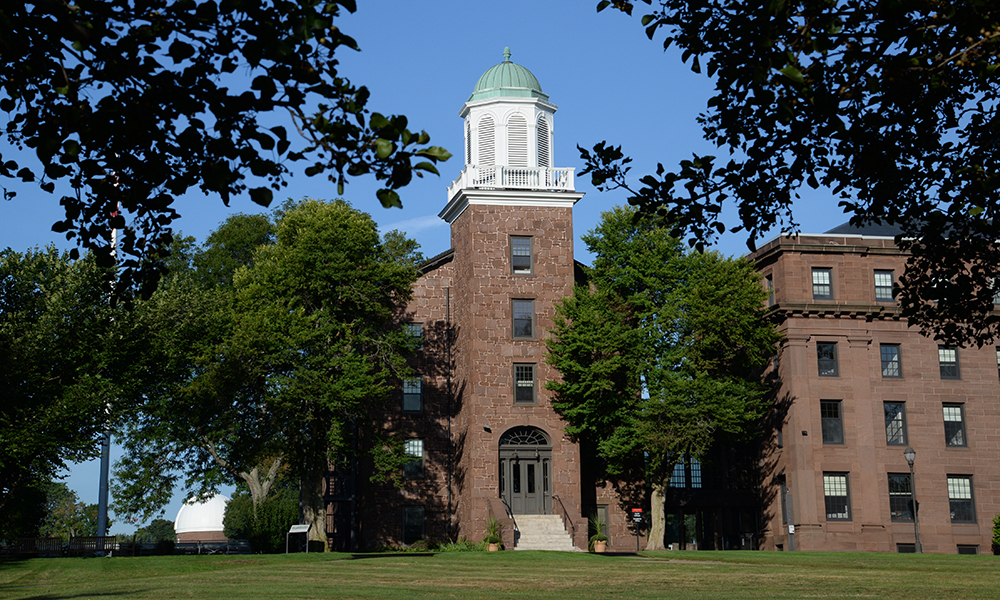Citizens and Scholars

By Anya Kisicki ’22
When President Michael S. Roth ’78 and a dozen of his peers gathered at Princeton University last August, they revived higher education’s civic mission: to serve the public good by preparing students for a life of active citizenship.
These 13 college presidents signed onto the Campus Call, a coordinated commitment to foster free expression on college campuses. “The Campus Call for presidents to promote civics literacy and political participation is a great step forward in helping our higher education institutions make a deeper contribution to public life,” Roth said in an article.
Convened by the Institute for Citizens and Scholars, this partnership unites a diverse coalition of college presidents from schools around the country (Duke, Cornell, Notre Dame, and the University of Pittsburgh, to name a few). These institutions have one thing in common—a sense that higher education must proactively cultivate a more thoughtful and engaged citizenry.
Here at Wesleyan, the Campus Call is being actualized through a variety of civic programming. The President’s Office is launching a multi-year Democracy in Action Initiative, empowering students to participate in civic life. The Initiative integrates opportunities for civic engagement, interdisciplinary research, and educational activities on issues that concern the future of our democracy. “Empowering students and teachers to engage with the complex issues facing the country are crucial facets of higher education’s contributions to the common good,” Roth said. In that spirit, the Democracy in Action Initiative will also sponsor a convening of scholars, students, and notable leaders in February. The event will investigate topics of free expression, community partnership, and interdisciplinary civic efforts.
Wesleyan’s Jewett Center for Community Partnership (JCCP) has launched a course in civic engagement practice. CSPL120 offers course credit for volunteer and paid participation in community service and civic efforts. The course features engagement tracks in social justice, artistic impact, and sustainability initiatives, realizing Wesleyan’s civic mission by harnessing students’ civic interests and providing institutional support for their pursuit. Sharing ideas, results, and research with institutional peers grows Wesleyan’s capacity to have a positive impact on our democracy. “This work also creates additional spaces – while providing real support – for students who are keepers of tradition of engagement and activism at Wesleyan which continues to thrive today,” said Clifton Watson, the director of the Jewett Center.
Other institutions partnered with Citizens and Scholars are similarly dedicated to promoting civic deliberation on their campuses. The president of Rutgers University is teaching a course on citizenship. DePaul University and Rollins College are using convocation as an opportunity to promote free expression. Cornell University will host a series of debates that model civic discourse for students and faculty.
Leaders in higher education have historically convened when democracy is in crisis; Campus Compact was formed in 1985 when the presidents of Georgetown, Brown, and Stanford declared that the core mission of the American university was to serve the public good (rather than private interests). Today, over 900 colleges and universities, including Wesleyan, are affiliated with Campus Compact. These institutions are collectively committed to serving the public good by allocating their resources for the benefit of the wider community.
Citizens and Scholars goes a step further, noting that for higher education to serve a public good, it must prepare its students to lead an active civic life before and after graduation. Promoting free expression is a great place to start. In a recent piece covering the Campus Call for free expression, Citizens and Scholars wrote, “Colleges and universities are among the few places in America where people from remarkably different backgrounds, cultures, and ideologies come together to wrestle with the complexity of what it means to be a democratic community.” This new partnership signals higher education’s renewed commitment to educating students for a life of active citizenship.

